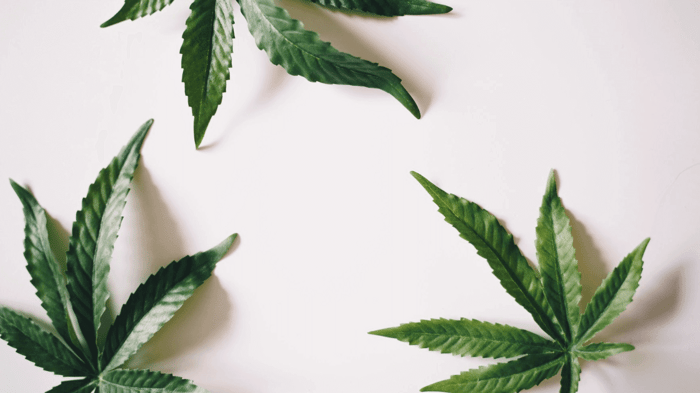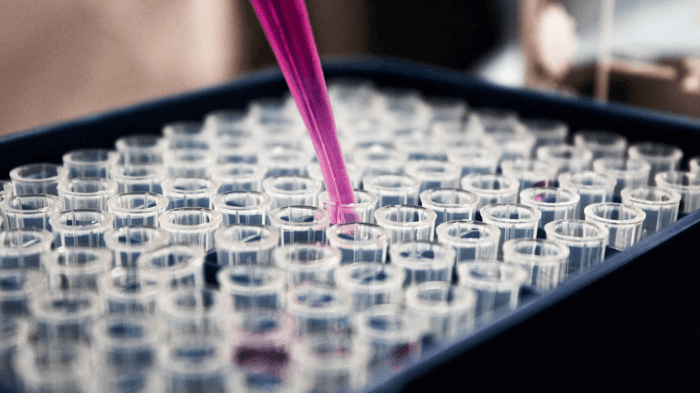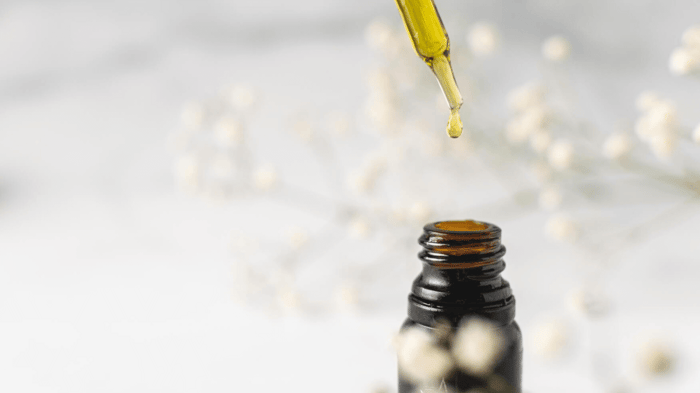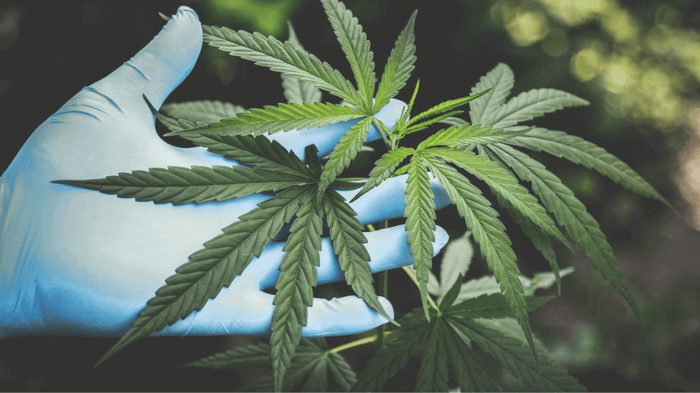02/22/2023
Within a living, growing cannabis plant, all cannabinoids are naturally in an acidic state. To indicate this fact, chemists put an “A” after the name of each compound. If you were to chemically analyze the living plant’s compounds, you would write your findings as THCA, CBDA, and so on.
By the time a CBD supplement reaches the shelves, it has typically gone through an extensive extraction, filtration, and testing process. Part of this process removes the acidic components from the cannabinoid molecules, which is why most supplements say they contain CBD instead of CBDA.
While that explains the chemistry technicalities, you might be wondering: What’s the difference between CBD and CBDA as it relates to product use and effectiveness? And what could this small difference between the acidic and non-acidic forms of cannabinoids actually mean?
Let’s talk about CBD vs. CBDA and explore why you might want to choose one or the other depending on your needs.
What is the difference between CBD and CBDA?
Chemically, the only difference between CBD and CBDA is an acidic carboxyl group. This means every cannabinoid with an “A” after its name has a group of carbon atoms bonded to oxygen atoms attached to the larger cannabinoid molecule.
Most CBD manufacturers remove this acidic carboxyl group through a process called decarboxylation. It may sound complicated, but decarboxylation can be as simple as baking cannabis plant biomass in an oven as part of the CBD extraction process. That’s because the acidic portion of the molecule is unstable and breaks away easily when exposed to heat.

In fact, decarboxylation happens so easily, something as simple as leaving CDBA in a hot car or smoking THCA in the form of marijuana leaves is enough to cause most of the cannabinoid molecules to shed their acidic components. Even without high heat, CBDA will eventually decarboxylate at room temperature, making its shelf life fairly limited.
If you were to purchase a CBDA supplement, therefore, you would need to be fairly careful with it. You might wind up accidentally decarboxylating the formula on your own without realizing it.
CBDA vs. CBD Benefits: Which is better?
Structurally, CBD and CBDA don’t look much different. And indeed, some preliminary tests have shown CBDA to have many of the same beneficial effects as CBD. You could probably take CBDA to aid in sleep, anxiety relief, and pain relief, just as you would with CBD.
However, there is a wide gap of research when it comes to CBDA use in humans. CBDA studies so far have primarily been done with animals, so we don’t know for certain how CBDA would compare to CBD in real life applications.
For this reason, we don’t recommend anyone rush out and purchase a CBDA supplement until more research has been conducted on the safety, bioavailability, benefits, and possible side effects of this similar-looking but possibly very different cannabinoid compound.
There is also another reason we hesitate to recommend CBDA currently. Because CBDA so easily decarboxylates into CBD, any CBDA supplement available for purchase would necessarily be in a very raw, unprocessed form. This also means the testing and purification processes that go along with the usual manufacturing of CBD may not have been performed.
If a CBDA manufacturer skips these steps in order to bring a raw and unprocessed compound to market quickly, they’re opening the door for microbial contamination and other impurities that would normally be detected and eliminated during processing and testing.
With those drawbacks in mind, animal studies of CBDA do present some intriguing possibilities.
Evidence shows that CBDA is a potent anti-inflammatory.
CBDA molecules have structural similarities to several nonsteroidal anti-inflammatory drugs (NSAIDs). Early research has shown that not only does CBDA look like an NSAID, it can behave like one too. If future studies replicate the same results, CBDA could be used for reducing pain and inflammation. For sake of comparison, some NSAIDs you’ve probably heard of include aspirin and ibuprofen.
CBDA affects brain chemicals in a way CBD does not.
It appears that CBDA interacts with our serotonin receptors in a similar way to many common antidepressant prescription drugs. This means there could be a potential for CBDA to act as an antidepressant or an anti-anxiety medication in some people who have imbalanced levels of serotonin. It could also mean side effects and medication interactions for people who take CBDA without knowing about its effects on the brain.
Researchers pursued CBDA as an anti-viral in early 2020.
There was some interest in CBDA during the height of the COVID-19 pandemic, because early evidence indicated that the compound could interfere with the virus’s ability to replicate. In theory, if someone were to contract COVID-19, they could potentially use CBDA to keep the infection from becoming as severe as it might have otherwise.
Again, however, this is a preliminary result from a limited number of studies; much more research would be needed to confirm whether CBDA does indeed provide this benefit and whether there are any risks associated with it.
Other benefits of CBDA appear very similar to the benefits you’d expect from CBD.
For example, it can help to reduce stress levels and ease you into a good night’s sleep, just like CBD.
It’s possible, however, that the stress-reduction effects of CBDA have more to do with its interaction with serotonin rather than its chemical similarity to CBD. CBD does not interact with serotonin, so users should not expect the exact same experience using CBD and CBDA for management of stress and anxiety.
What is Butler Hemp Co.’s stance on CBDA vs. CBD?
Until recently, the acidic forms of cannabinoids were considered less bioavailable (and therefore less useful for supplement purposes) than the decarboxylated forms. Only in the past few years have the acidic forms of cannabinoids emerged as subjects of interest for scientists, and testing is still in the early phases.
We are intrigued by the possibilities of CBDA as a supplement. We feel it does show promise in several areas. However, without more research to illustrate exactly how CBDA affects human subjects, we can’t recommend it to our customers. While CBDA and CBD appear similar in many ways, there are enough differences to warrant further exploration before consumers dive into using CBDA on a regular basis.
Additionally, if you do purchase a CBDA supplement, be cognizant of the manufacturer’s safety protocols. Because CBDA must be used in a raw, relatively unprocessed form, it’s important that manufacturers perform extensive testing to make sure no contaminants are present in the formula. It’s worth noting that researchers are working on ways to create stable, synthetic forms of CBDA, but these have not yet been tested on humans either.
For most people, and in most applications, the benefits you could receive from a CBDA supplement can just as easily — and more safely — be obtained from a high quality CBD supplement.
Butler Hemp Co. is proud to deliver only safe and rigorously tested products to our customers. That’s why each CBD product we create undergoes multiple rounds of tests before it ever hits our shelves. For now, we’re waiting for more information to roll in before we begin exploring CBDA as a supplement. But in the meantime, you can still soothe your nerves and drift off to a restful sleep with our tried-and-true CBD products.
Shop around, read more about CBD, and let us know if you have any questions!




